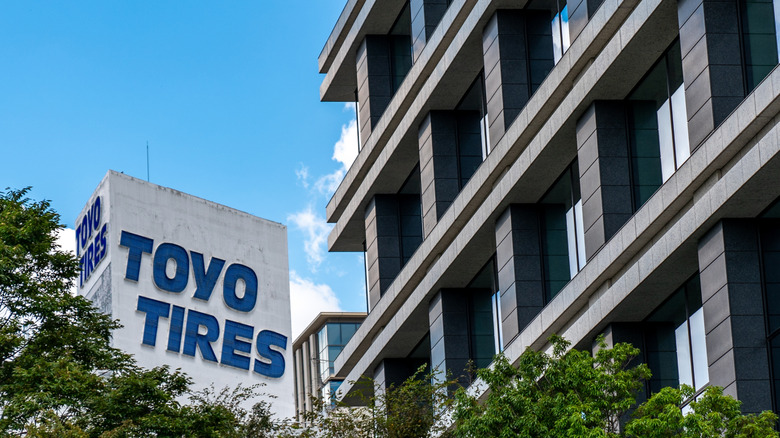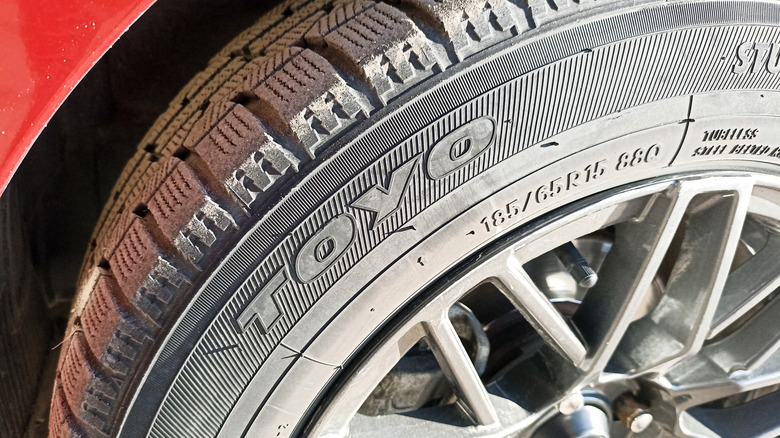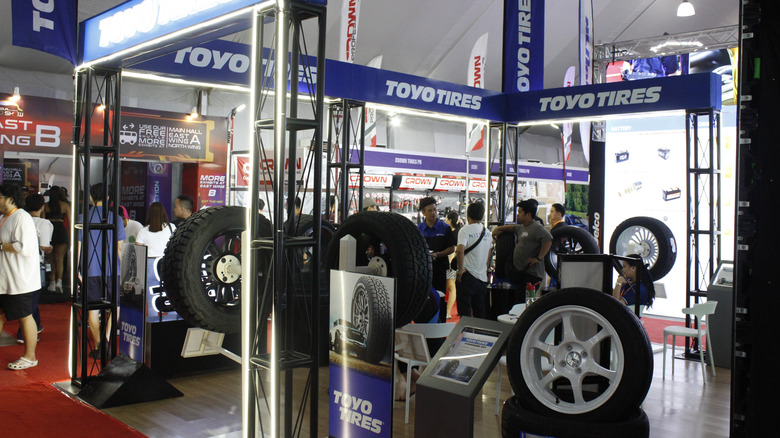Where Are Toyo Tires Made And Who Owns The Company Today?
Unlike Michelin or Bridgestone, Toyo doesn't quite have a century-old legacy, but has a global production footprint, and a calculated one at that. The company's Sendai and Kuwana plants in Japan continue to be the central hub of operations, along with R&D facilities and testing grounds where compounds and tread designs are put through rigorous testing before being used on public roads.
The company also owns another massive facility across the Pacific in White, Georgia, one which showcases the brand's technical edge. For starters, the White facility operates the company's A.T.O.M. process – a ribbon-winding technology that chops lead times to one-fifth of standard builds and cuts floor space requirements by a whopping 35%. Impressive, to say the least. It is currently one of the biggest tire factories in North America, spanning around 1.7 million square feet after multiple expansions.
Europe isn't left out either. Toyo opened a factory in Inđija, Serbia, with a target of churning out five million tires annually. Not only does this facility add to Toyo's production muscle, it's also designed for cutting EU shipping costs. As for supply in the rest of Asia, that's handled by Toyo's Chinese operations and the Taiping facility in Malaysia.
Who really owns Toyo Tires today
Toyo Tire & Rubber Corporation is a publicly traded Japanese company (Tokyo:5105), on paper, that is. In practice, it's Mitsubishi Corporation that boasts the single biggest influence, after upping its stake from 3.05% to 20% back in 2018. Through that deal, Toyo was now tied to Mitsubishi's resources, particularly in AI-driven production, supply chain strength, and even global sales networks, so it wasn't just another money drop.
Making up the rest of the shareholder roster are big trust custodians like The Master Trust Bank of Japan with 14.55%, Custody Bank of Japan with 6.68%, even rival Bridgestone and Toyota Motor Corporation have minority stakes, among several others. Seeing companies like Toyota and Bridgestone on the list just goes to show how the Japanese auto industry often looks more like a familial web rather than a cutthroat rivalry. The biggest perk of this is, perhaps unsurprisingly, stability.
Inside Toyo's playbook: innovation and niche loyalty
Toyo's secret weapon isn't just its factories, but rather its ability to balance between high-tech manufacturing and cultural awareness. The company can run small-batch, multi-size production with flawless uniformity, thanks to its proprietary A.T.O.M. system. For aftermarket buyers who expect odd sizes for lifted Tacomas, overlanding rigs, or wide-body imports, that flexibility is invaluable.
Marketing-wise, Toyo doubles down on enthusiasts, mostly truck owners, SUV drivers, and tuners. If you attend off-road competitions and custom truck displays, then you know that its Open Country family — the A/T III, M/T, and the recently released R/T Pro — is essentially a badge of honor.
In fact, the R/T Pro's debut in 2025 rolled out in dozens of sizes and load combinations from day one in a daring attempt to secure fitments before competitors could catch up. Rather than try to outmuscle Bridgestone or Michelin, Toyo thrives on controlling niche markets and nurturing loyal communities. The result? A brand that is performance-driven without sacrificing its street (or trail) cred, and feels high-end without being stuffy.


